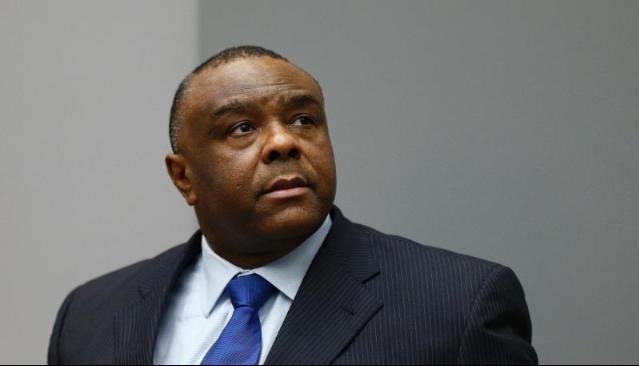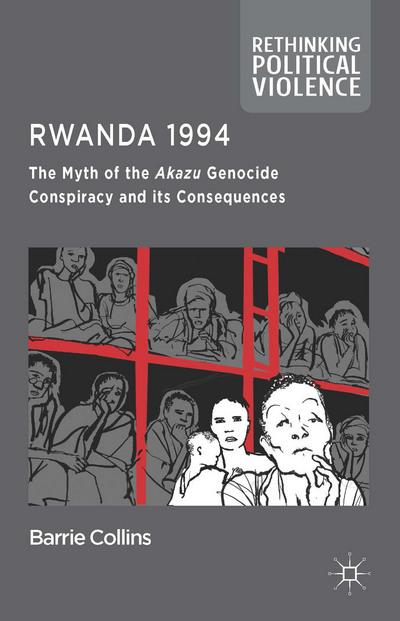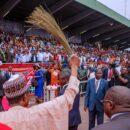Congo: Jean-Pierre Bemba has served his time. Now let him serve his people

Bemba was in jail for the 8 years during his trial at the ICC. He should be sentenced to time already served so he can return to the DRC where his leadership is needed, argues Hank Cohen.

Jean-Pierre Bemba was sentenced to 18 years by the ICC.
Jean-Pierre Bemba was vice-president of the Democratic Republic of the Congo (DRC) from 2003 to 2006. He is the popular political leader of the Congo’s Equateur Province in the country’s northwest, an area the size of France. Between 1998 and 2002, the DRC was in a state of civil war, with several African countries involved militarily in support of the government or in support of various rebel movements. During this period, Jean-Pierre Bemba was President of the MLC party (Movement for the Liberation of the Congo). His party also had an armed wing of several thousand fighters who supported the government against various rebel movements.
The fighting in the DRC stopped in 2002, leading to a negotiated new constitution, and a transitional government from 2003 to 2006. During this period, Bemba was one of four transitional vice-presidents under the transitional president, Joseph Kabila. The first postwar democratic election was held in 2006, with Bemba obtaining the most votes in the first round, before losing to Kabila in the second round with 42% of the vote.
Before this though in 2002-2003, with a ceasefire in place in the DRC, Bemba decided to send his militia to neighbouring Central African Republic (CAR) in support of President Ange-Félix Patassé who was facing a number of armed rebellions. Patassé had previously helped Bemba organise his armed force in the DRC. The civil war in the CAR was particularly nasty in the actions committed against civilian populations by the different armed factions, including Bemba’s.
In view of crimes allegedly committed by his militia in the CAR, Jean-Pierre Bemba was indicted by the International Criminal Court in The Hague for “crimes against humanity” in 2008. The indictment said that Bemba’s militia engaged in pillaging, rape and other crimes against civilians, including cannibalism. The prosecution document did not accuse Bemba of inciting his fighters to commit crimes against civilians. However, the prosecution accused him of failing to engage in proper supervision in order to prevent the crimes allegedly committed by his men.
After eight years of deliberations, the Court convicted Bemba of war crimes and crimes against humanity this March. In July, the court handed down a sentence of 18 years in prison, eight of which have already been served. His defence has decided to appeal.
I have read documents produced by both the prosecution and the defence. As a former military officer, I believe that the commander of troops is responsible for everything his soldiers do, or fail to do. But in the case of Bemba, I believe there are mitigating circumstances. The most important being that for much of the time his troops were in the CAR, he was in South Africa engaged in negotiations for the political transition and elections in the DRC.
It is not my place to argue about Bemba’s guilt or innocence. However, I firmly believe that the nature of the offence should not be the cause of a long prison sentence as in the cases of Liberia’s former president Charles Taylor and Chad’s former president Hissène Habré, both of whom actively encouraged atrocities against civilian populations. Bemba’s main offence was apparently neglect.
Bemba has already served eight years in prison during the long period of the trial. Given the nature of accusations against him, I believe those eight years are sufficient and that he should be sentenced to time already served.
Apart from the issue of justice, Bemba is needed in the DRC to resume his role as a political leader of a major ethnic region in Equateur Province. His vote tally in the 2006 election indicated that he is enormously popular and has significant leadership qualities. This is especially important at the present time because the DRC is going through a period of constitutional and political crisis. President Kabila’s second and final term officially ends in December 2016, but he is showing signs of not wanting to leave and of possibly finding ways to remain in power indefinitely. This is a period when the opposition needs to be unified in order to maintain maximum pressure against the regime, and Bemba is needed to stand with the opposition in support of constitutional democracy.
[See: DR Congo: Can anyone stop Joseph Kabila?]
My message to the International Criminal Court is short: Bemba has already served his time; now let him to return to the DRC to serve his people.
Herman J. Cohen is a former US Assistant Secretary of State for Africa.







‘former US Assistant Secretary of State for Africa’ is at best a disingenuous description of Cohen’s more recent role. Cohen runs a lobbying firm that has allegedly represented the governments of Angola, Zimbabwe, Eritrea and it would appear is on a Bemba retainer.
I understand its a complex world and there are bills to pay – still it would only be fair to readers to appropriately acknowledge the writer’s bias.
Jean-Pierre Bemba is not what DRC needs at this moment. Bemba represents an ethos of leadership governance grounded in the past during the time DRC was roiling in conflict internal and external. DRC to emerge as a nation state responsible prescriptive positive is in urgent requirement of leadership transformative, dedicated to the proposition government exists to serve the citizen not to plunder and steal and service the international oligarchs at the expense in the utter dearth in DRC national health care infrastructure. Furthermore, resources should be dedicated towards rebuilding the DRC educational system which today is moribund.
Bemba represents a value system steeped in civic civil social corrosion as he is lacking utterly in terms of his character evidenced from his previous endeavours when exercising power responsibility in the DRC Government. Bemba lacks any facet of normative integrity. I believe it best if Bemba remains in custody where he will be limited in the harm his return to DRC may provoke.
Really that’s a good I dear because bemba is a wrong leader, we need strong leader’s in our country especially in this crisis were people are being killed and poisen by the government of kabila ,women’s raped,children’s abused ,kabila is a failed government for 16 years people are suffering, police and soldiers are suffering they can’t even afford food or education for their children’s who are the future of tomorrow, most of people they don’t work ,children’s are the victim’s ,we need our voice to be head, kabila is a dictator, with a bad heart who cannot change anything but stealing our money and make Rwanda rich ,killing Innocent people, ii m a mother I no the pain we are going through and he must held accountable for the crime’s he as done in Congo please you need to do something, this is not democracy our country is rich but our incompetent government are full of corruption they don’t have the compassion on how the real Congolese are suffering and being killed no freedom of speech this is ridiculous
My position is clear, Bemba should not stay in jail. Congo needs a real son of the country to consolidate institutions and democracy. Bemba’s place is in Congo leading official institutions not in jail.
We all know that his arrestation was political. At this time Congo needs leaders Bemba is a natural leader for congolese.
Bemba is a great guy who should definitely be released and is definitely not the chief of thousands of cannibal rapist killers and Hermann “Hank” J. Cohen is a genius visionary non-lobbyist and definitely not like a character from Doonesbury the long-running comic strip in America. So Bemba should be released straight away to join the amazing political future that awaits the DRC in 2017 and the fun can begin. But actually on the other hand I am simply not really sure what I should think any more and what is true and what is not true.
It seems very weird to see that a man who led a territory larger than France for 5 years without any of those mass killing and human right violation. The same man who beats his challenger about 90% during the 2006 election in the same territory while everybody knows that a criminal could not be elected in a territory in which in committed crimes. And suddenly becomes a mass killers only once his soldiers cross the river to defend a democratically elected president while facing a rebellion.
Also, how can Bemba remains so popular in Congo 9 years after being arrested and condemned if he really is that criminal portrayed by the ICC and some humanitarian organizations. It is very important to further our thoughts about a possible collusion between ICC, some human right organizations and governments for some politically motivated goals in accusing some leads in the ICC